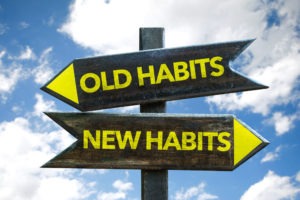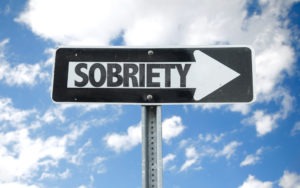Addiction | 5 min read
What Are 12 Step Programs?
Medically Reviewed By

On August 30, 2022
Written By
On October 22, 2020

Those struggling with addiction often feel like they are all alone in facing an unwinnable battle. They can feel like they are on an impossible journey without anyone to guide or support them. Luckily, there is assistance out there for those fighting this disease. 12 Step programs have been assisting folks in their recovery for many years. Despite their prevalence in assisting those battling dependency on various unhealthy influences, they are still not understood by many in our society. Below is some information about these helpful programs for those who may want to know more about them.
The History of Battling Addiction
When it comes to overcoming dependency on drugs and alcohol, many different methods have been developed to assist people. 12 Step Programs were developed by the founders of Alcoholics Anonymous as a way to assist people in beating their reliance on alcohol. Bill Wilson, one of the founders, developed these steps in 1938. Over many years, it became successful enough for other groups to customize the steps to help their members.
The steps were created with a basis in spirituality. While the religious nature of this program is clear, it has also assisted many people with no religious affiliation in conquering their dependency. Much of this is achieved because there is an acknowledgement in the steps that God means something different for every individual. This allows the program to be accessible to everyone, regardless of how religious or non-religious they happen to be.
What Are the 12 Steps?
While some people may be familiar with the program, fewer know the exact steps. The idea behind this method is that those seeking treatment may have to visit a step more than once. In fact, it is expected. The approach to the program is that it is non-linear in a sense and a constant “work in progress.” People working the steps are told that the first three steps of the program are essentially the building blocks of all the others. Some people who are working the steps are often working several of them at one time.
The 12 steps are as follows:
- Admitting that one has no power over your dependency and that their life is out of control because of it.
- A greater power than ourselves is the path toward recovery
- Giving up one’s life and will to God, as the individual understands it.
- Conduct a probing, honest search of one’s morals
- Admitting to one’s self, God, and others all our wrongdoings
- Be ready to have God remove the shortcomings in our character
- Ask God to remove these failings
- The individual will make a list of everyone they have harmed and be ready to make peace with them.
- Make peace with those they have wronged, except in the cases where doing so would harm them or other people
- Individuals continue to assess themselves and admit any wrongdoing.
- Continue to develop a connection with God, as understood by the individual, through prayer and meditation. These prayers are only to ask to know the will of God and for the power to carry it out.
- Achieve a spiritual awakening, constantly practice the steps, and deliver the message to all those who are in need.
How Does it Work?
The basic idea behind this practice is that an individual can develop abstinence from the vice that has control of their life. Whether their issue is with gambling, alcohol, narcotics, or sex, the hope is that the program can be a place where people can share their experiences and act as a support system for each other. This support is often done through meetings where individuals share their stories and struggle with others facing the same issues. Because of the recent COVID-19 pandemic, many programs support members with virtual meetings.
This support system that is fostered by this practice is designed to assist members in having the strength, resolve, and mental health to continue abstaining from the substances that have harmed them. A lot of research has been done that shows those individuals who completely give up their dependencies report a much better mental state than those who still dabble.
Long-term, the hope is that the steps change the behaviors that have led the addict to dependency. In addition, by providing support and structure, this program hopes that members will be able to make more healthy choices when it comes to the vice with which they struggle.
The Relationship Between a Sponsor and Their Charge
When an individual embarks on their journey through the 12 steps, they are not expected to navigate that road alone. While this program doesn’t believe in a hierarchal system, the sponsor is often someone who has been involved with the steps for a long enough time that they have a good foundation with the steps. The entire group is dedicated to helping members stay on the path away from their dependency. A sponsor can be an extra resource or support system for someone who needs it.
Often, the role of the sponsor will be to do things that encourage their charge to participate in the meetings and interact with other folks in the group socially. They are also often expected to give and discuss information about the program with the person they are sponsoring. Sponsors are also expected to be there to answer questions, share their past experiences with their dependency, and assist the person they are sponsoring in making difficult decisions.
Since there is no hierarchal structure in many of these programs that work the steps, the relationships between sponsors and those they are sponsoring are often very informal. Some sponsors and their charges speak every day, while others find that speaking once a week is perfectly fine. Sponsors are completely free to set their own boundaries. Some sponsors make themselves available to those they sponsor at any time. In other arrangements, the sponsor sets up “office hours” when they can be contacted for questions, concerns, or support. It is important to remember that the sponsor is also in recovery, so they must take care of their own needs.
Getting Help with the 12 Steps
Like with anything, the 12 Steps work best when the person is dedicated to doing the work necessary to make the changes. However, it is also important to note that the program may not be the best choice for everyone. There are several other options for those seeking treatment for their dependencies. Residential rehabilitation and Outpatient rehabilitation are two of the approaches that are also popular among those seeking help with their issue.
Ultimately, the individual must decide how they will successfully overcome their addiction. Working the 12 Steps has been a time-tested method for almost 100 years and continues to provide support to many people all over the world. With hundreds of thousands of 12 Step groups set up to assist addicts, finding assistance for the battle you are waging with your dependency is easier. But the first step to regaining your life is admitting the problem, then seeking help. Detox comes next.
Ascendant New York can help you begin your journey. If you or a loved one are seeking addiction services, call our 24-hour admissions line today for a free consultation and no-obligation insurance verification. Our detox center in New York has helped many individuals overcome their addictions and begin a new life of sobriety.
Was this article helpful? Follow our blog for more information about addiction, substance use, and how to get help. Recent posts include topics such as how to find the best alcohol treatment and drug slang you need to watch for.
Ascendant New York Editorial Guidelines
Here at Ascendant New York, we understand the importance of having access to accurate medical information you can trust, especially when you or a loved one is suffering from addiction. Find out more on our policy.
- Smith B, Wilson B. The Big Book of Alcoholics Anonymous. CreateSpace Independent Publishing Platform; 2013.






